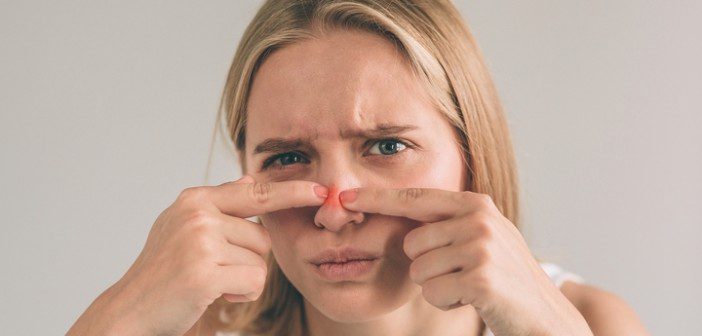While stress does not technically cause acne, it can play a huge role in those unwelcome blemishes. Stress can lead to your body releasing the hormones cortisol and adrenaline. These hormones cause inflammation. In turn, that can increase your skin’s oil production, leading to unwanted breakouts.
Acne is caused by dirt, oil and dead skin clogging your pores. When you produce too much oil, it clogs your pores and becomes a perfect breeding ground for bacteria. Fortunately, you can take steps to treat and prevent stress acne.
Here is how to get rid of stress acne easily:
Acne Treatment

Don’t forget that if you struggle with stress acne, it’s always advisable to seek out the help of a Toronto cosmetic clinic. They will be able to give you advice that is personalized to your needs.
Stress is an inevitable part of life. The best way to prevent stress acne is to maintain a regular skincare routine and to take care of yourself by getting proper exercise, nutrition, and sleep. See your dermatologist or experienced aesthetician for further advice.
Reduce Stress Levels
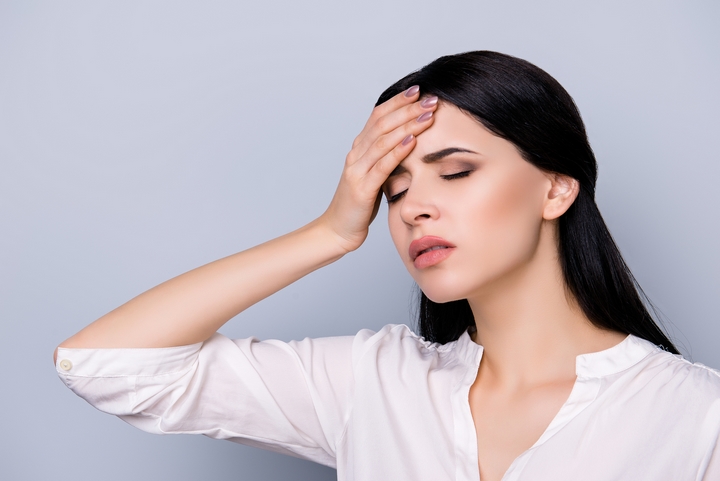
The most effective way to deal with stress acne is to fix it at the source. Try deep breathing exercises or meditation apps.
Talk to a friend or go for a run. It doesn’t matter what you choose. The important thing about stress relief is finding what works best for you.
Sleep Better
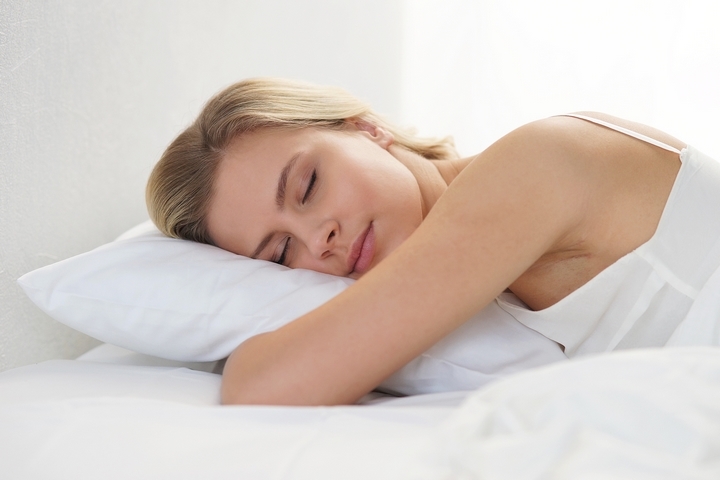
They call it beauty sleep for a reason! Sleep is an essential component in maintaining a healthy complexion. Our bodies enter repair mode when we slumber, and a healthy night’s sleep helps keep our cortisol levels from spiking. Try to aim for 8 hours every night and stay on a regular schedule.
Exercises for Acne

Motivation can be hard to muster when you are stressed. Still, exercise is a great way to improve your overall well-being. Exercise can help prevent stress acne because it helps your body deal with excess cortisol levels. Please don’t overdo it, though.
Working out too vigorously can have the opposite effect and increase that pesky hormone cortisol. Exercise also helps keep your skin clear; it increases blood flow, bringing oxygen and other nutrients to your skin cells.
Diet for Acne

Since stress acne is linked to inflammation, it is a good idea to look at the foods you have been eating. For some people, foods like dairy products or sugary sweets can cause inflammation in the body and make you more prone to getting pimples. Limit caffeine and alcohol. Try to incorporate lots of dark leafy greens and foods rich in omega-3.
Stay Hydrated

We are all aware that our skin is the largest organ in our bodies. But many of us don’t understand how important proper hydration is for our skin’s health. If you don’t get in enough water, your skin can’t effectively do its job. Drinking enough water is essential to allow our skin to flush toxins that might otherwise end up clogging your pores.
Skincare Routine for Acne
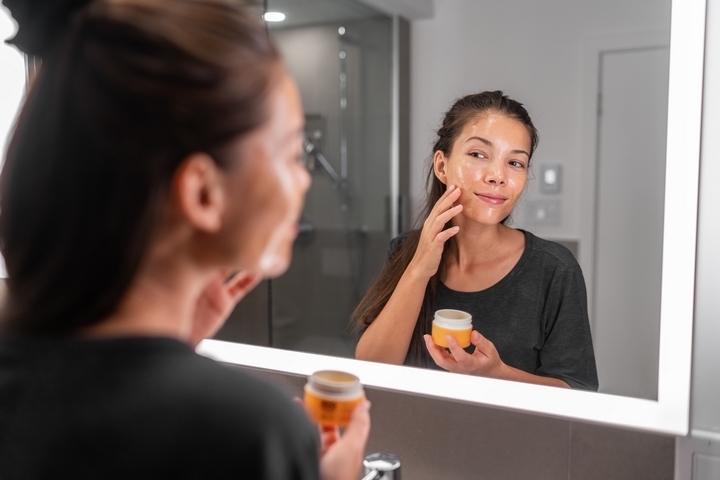
A consistent skincare routine is an essential part of controlling stress and acne. Make sure you use a good quality ph balanced cleanser and a moisturizer that doesn’t clog your pores. You can incorporate a serum into your routine, also. Wash and apply lotion to your face a minimum of twice a day.
If you are working out, you should also do your whole skincare routine post-workout. Sweat will only make a stress-acne breakout worse.
Exfoliation for Acne
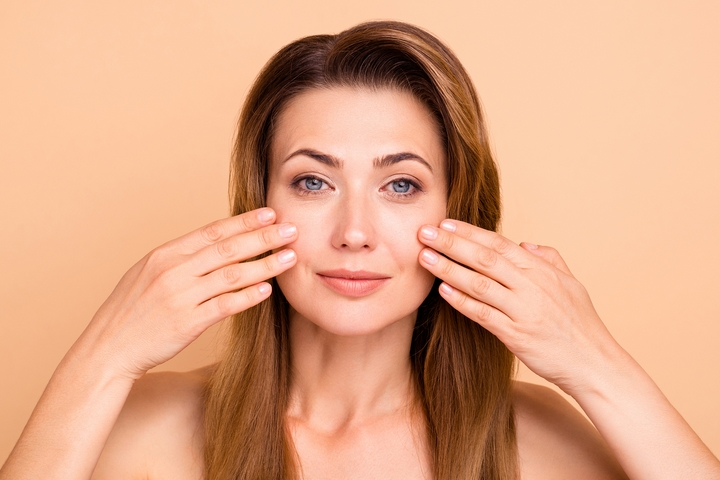
Get into the habit of exfoliating regularly. Make sure you use a gentle exfoliant, as one that is not gentle can cause micro-tears in your skin.
Moisturizer for Acne
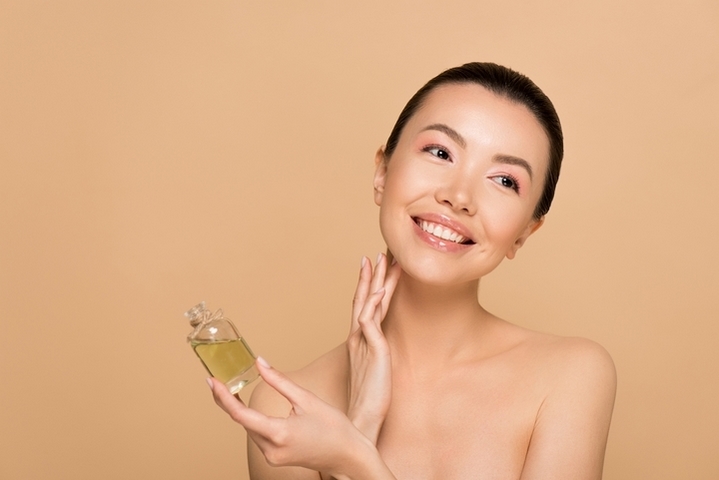
If your skin is producing excess oil due to stress hormones, it can seem counterintuitive to use moisturizer. However, this is a step you never want to miss in your skincare routine. When your skin is not adequately moisturized, inflammation can produce more oil.
Dehydrated skin is a major cause of pimples and congestion. The solution is an intensive focus on hydrating the skin from the outside.
Leave Your Skin Alone
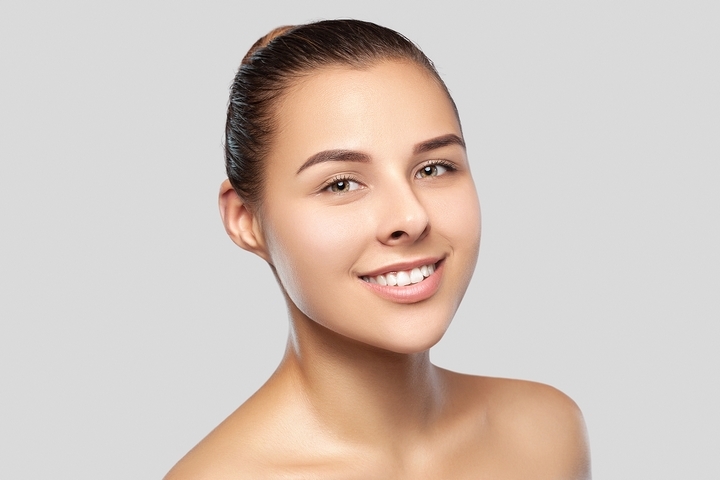
Try not to pick at your skin. Your hands are dirty, even if they look clean. Touching your skin only helps spread more bacteria. It can also cause permanent scarring.
If you must pop your pimples, do so correctly. Wash your hands first; never try to pop a cyst or deep-set pimple.
Topical Treatments for Acne
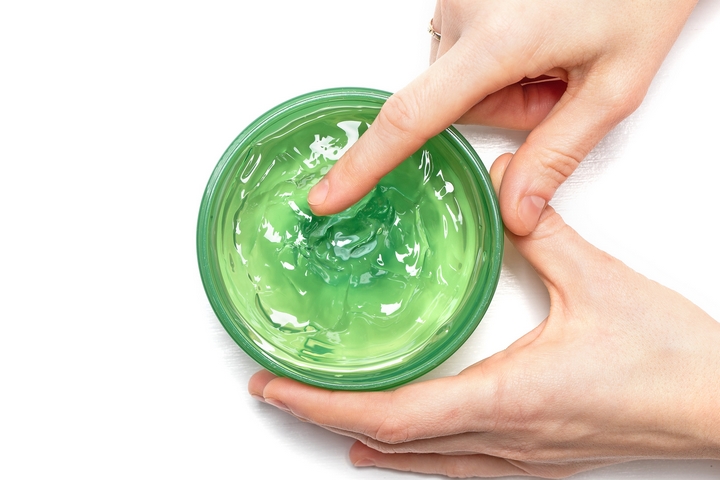
If, despite your best efforts to tame stress acne, it still appears, a few effective treatments can help you spot-treat the pimples. Benzoyl Peroxide is anti-inflammatory and anti-microbial. It works to fight bacterial infections and increased inflammation.
Salicylic Acid unclogs pores and helps to reduce oil buildup, and Retinol accelerates cellular turnover. Never use all three at once. There are also pimple patches – adhesive stickers with active ingredients- ready to apply. As a bonus, a pimple patch will also prevent you from touching or picking at the pimple.

